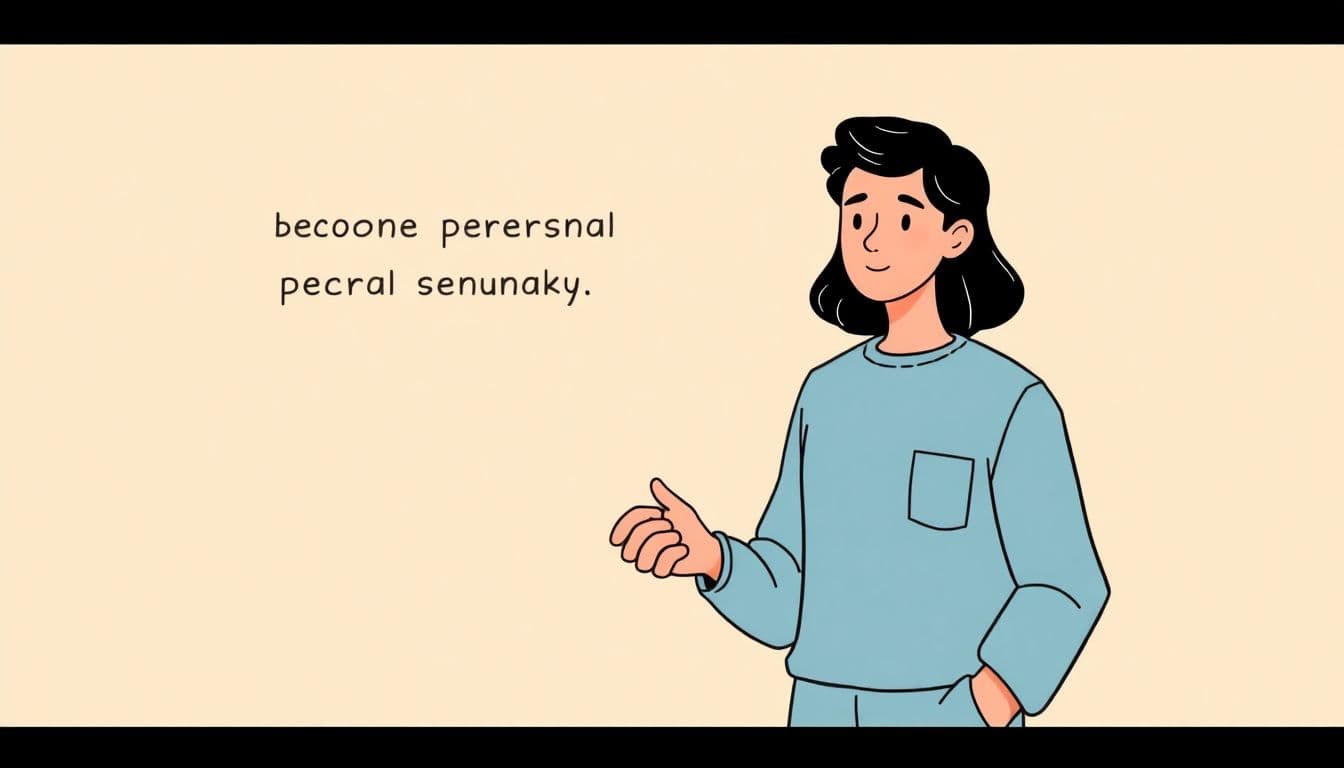Table of Contents
I get it—choosing an online writing degree can feel overwhelming. There’s so much to consider, like costs, timing, courses, and whether it’s even worth the money and effort.
Lucky for you, this guide is here to clear things up. Stick around, and we’ll chat about the best degree programs, common courses you’ll find, how long you’ll spend in classes, plus tips for applying, and most importantly, what awesome careers can come your way afterward.
Ready? Let’s get started.
Key Takeaways
- Southern New Hampshire, Arizona State, and University of Central Florida offer affordable, flexible options with strong reputations.
- Expect courses like creative writing, technical writing, copywriting, and editing for balanced practical and creative skill-building.
- Online programs typically range from $11,700 yearly; leveraging scholarships, transfer credits, and accelerated courses can help lower costs.
- Full-time online degrees generally take four years, but accelerated options or transfer credits may shorten this timeframe significantly.
- An online writing degree equips you with in-demand skills such as clear communication, research, project management, content marketing, and editing.
- Graduates move into diverse fields: copywriting, content marketing, technical writing, publishing, editing, creative careers, and freelance opportunities.

Step 1: Best Online Writing Degree Programs in 2025
If you’re thinking about pursuing an online writing degree in 2025, you’ve picked an excellent time. Interest in virtual education has skyrocketed, spiking from 293,689 students in 2019-20 to a whopping 590,267 in 2020-21, mostly due to the pandemic shifting traditional classes online (source).
So, what’s the top-rated pick? For affordability, Southern New Hampshire University consistently earns high marks, with tuition costs landing below $11,700 annually. Arizona State University and University of Central Florida also offer highly respected programs known for strong student support, flexible scheduling, and great reputation.
If your primary concern is how quickly you’ll see a return on your investment, look at schools with top Salary Scores, which measure graduate earnings. Some online writing degrees currently hit impressive numbers, reaching around $63,300, reflecting the rewarding career paths you could land after graduation.
My best advice? Check the details of each program you’re interested in carefully—look at their accreditation (always important!), student reviews, overall flexibility to fit your lifestyle, and their specific writing specializations, such as creative writing, journalism, screenwriting, and professional communication.
Step 2: Common Courses in Online Writing Degrees
You might wonder, what exactly will I be learning in one of these online writing degrees? Good question! Prepare yourself for a mix of creative, professional, and analytic courses designed to equip you with all the skills needed to succeed as a professional writer.
Common courses you’ll come across include:
- Creative Writing: You’ll experiment with different genres like fiction, poetry, and creative nonfiction, where you get to tap into your imagination and craft engaging narratives like those found in these fun and creative funny writing prompts for kids.
- Technical Writing: If clear, concise communication is your game, you’ll shine here, learning to write instruction manuals, guides, and documentation for industries like tech or medical fields.
- Professional Copywriting and Marketing: You’ll learn persuasive writing skills needed in business settings, crafting compelling sales copies, web copy, blog content, and more.
- Screenwriting and Playwriting: Interested in TV or theater? This will walk you through creating engaging scripts and dialogues for stage and screen.
- Editing and Publishing: Classes here will teach you essential editing techniques, how the publishing industry works, and how to move your projects from rough drafts to polished pieces.
A solid writing degree usually blends theory with tons of hands-on practices. You’ll get plenty of opportunities to workshop your writing, get feedback from instructors and peers, and seriously improve your skills throughout your studies.
Step 3: Cost of Online Writing Degree Programs
Alright—talking money now, because honestly, affordability is probably one of your biggest concerns. And you’re not alone; in fact, around 42% of students in 2023 chose online degrees specifically because they’re easier on the wallet.
Here’s the good news: Many highly respected online writing degrees cost much less than their campus-based equivalents. Tuition for the more affordable programs can even dip below $11,700 per year, making them a smart option if you’re concerned about student debt.
Keep an eye out for these money-saving strategies:
- In-state tuition rates: Even for online programs, some schools still offer cheaper tuition for local residents.
- Financial aid and scholarships: Many universities provide merit-based scholarships specifically for students pursuing degrees in writing, journalism, and communications.
- Transfer credits: Don’t forget to leverage your previously earned credits or experience—some online programs generously accept transferred credits, significantly reducing overall costs.
- Accelerated programs: Some degrees allow you to study at your pace—or faster—with accelerated courses or shorter terms, cutting down on total tuition expenditures.
Bottom line? Plan carefully, compare programs, keep scholarship deadlines pinned on your calendar, and always reach out directly to schools’ financial aid offices—they can often help you identify funding opportunities you didn’t even know existed. After all, every bit of cash saved now is money you won’t have to stress over later.

Step 4: How Long Does It Take to Finish an Online Writing Degree?
A typical online bachelor’s degree in writing usually takes around four years to complete if you’re studying full-time.
But here’s the thing—lifesaver alert—you can speed things up if you have transfer credits from previous colleges, Advanced Placement (AP) exams, or relevant professional experience.
On the practical side, some of the best schools, like Southern New Hampshire University and Arizona State University, offer accelerated tracks or flexible pacing, meaning you could finish in less than two to three years if you’re motivated.
On the flip side, if life’s busy or if you’re juggling work or family commitments, part-time options are widely available, stretching your timeline to possibly five to six years—that’s totally normal.
My recommendation is: balance pace with quality; rushing through is tempting, but make sure you’re absorbing the content, networking with peers, and building a strong portfolio to use after graduation.
Step 5: Skills You Will Gain From an Online Writing Degree
When you fit an online writing program into your life, you’ll walk away with skills that stretch beyond just writing pretty sentences—I promise.
First off, communication: online writing courses sharpen your ability to convey ideas effectively and clearly, a skill employers rank among their top priorities.
Second, research—perhaps surprising, but writers become experts at digging up information, verifying data, and converting research into easy-to-understand written content.
Third, project management skills are a hidden bonus; managing writing assignments online with deadlines develops your ability to multitask, organize schedules, and meet tight deadlines (skills employers love).
You’ll also become skilled at content marketing; programs often teach SEO (search engine optimization) principles, keyword placement, and audience targeting, which translate to valuable marketing capabilities, especially if you want to sell ebooks on your own website.
Finally—editing and revising become second nature once you get practice critiquing your work and your peers’, ensuring everything you create is polished and professional before you hit send.
Step 6: Career Opportunities After Completing an Online Writing Degree
Let’s be real—after spending time and money on an online writing degree, you want to know what career opportunities are in store, right?
The good news is, as of recent data, top online writing graduates can reach Salary Scores up to around $63,300 annually, making it a solid investment for your future.
Career options are diverse—think content marketing specialist, copywriter, social media manager, or technical writer; these careers blend creativity with great salary potential.
If fiction or creative writing is more your style, positions like novelist, screenwriter, or freelance writer offer endless flexibility, letting you write from literally anywhere.
You can even venture into book publishing, editorial roles, or unique niches such as becoming a book editor, creating audiobooks, or writing materials for educational platforms.
An online writing degree doesn’t box you in—it opens doors to various careers across virtually every industry where clear, thoughtful communication counts (which means nearly all of them).
Step 7: How to Pick the Best Online Writing Degree for Your Goals
Choosing the right online writing program feels like picking ice cream flavors—a lot of great options, but it has to match your taste.
First, define your goals clearly—are you interested in creative writing like fiction or poetry, or do you lean towards journalism and professional communication?
Next, check accreditation status—always go with programs accredited by recognized bodies, so your degree holds weight and students can access serious financial aid.
Consider faculty experience as well; learning from published authors, editors, or experienced professionals makes a massive difference in the practical skills you’ll gain.
Don’t forget flexibility: look closely at how courses are delivered (synchronous or asynchronous?), time frame (accelerated options?), and the possibility of accommodating your busy life.
Finally, listen to students who’ve ‘been there, done that’—student reviews on social platforms or sites like Reddit give you helpful, no-nonsense insights from people who’ve actually attended these schools.
Step 8: Application Tips for Online Writing Degree Programs
Applying to an online writing degree might seem daunting, but seriously, don’t stress—you’ve got this.
First tip: Pay attention to admission requirements; many programs require a high school diploma, transcripts, personal statement or writing sample, and possibly recommendation letters.
About your personal statement—this is your moment to shine; tell the admissions team why writing specifically appeals to you and why their program is your first pick.
Include writing samples that align closely with the specialization you’re applying for (creative writing, journalism, etc.); for instance, fiction examples suit creative writing programs, while clear essays or articles highlight strength in journalism-centric programs. If you need fresh ideas to help craft compelling writing samples, you can check out these creative and seasonal winter writing prompts, which might spark something uniquely impressive.
Take your time polishing your application materials and don’t shy away from showing your personality—instructors appreciate authenticity.
Lastly, apply early to increase your chances of securing scholarships and financial aid—the sooner your paperwork is in, the better your odds.
FAQs
An online writing degree typically costs between $10,000 and $30,000 total, depending largely on the college, program length, and student residency. Public universities usually offer lower tuition than private institutions or specialized schools.
Graduates of online writing degree programs often become content writers, editors, copywriters, technical writers, and social media strategists. Some also pursue roles in publishing, marketing communications, public relations, or freelance writing.
Completing an online writing degree generally requires 3-4 years for a bachelor’s program and about 1-2 years for a master’s degree. Accelerated options may be available, allowing students to graduate sooner.
Consider accreditation status, tuition cost, course offerings, faculty expertise, student support systems, and flexibility of scheduling to ensure the online writing program matches your career goals, learning style, and budget.



